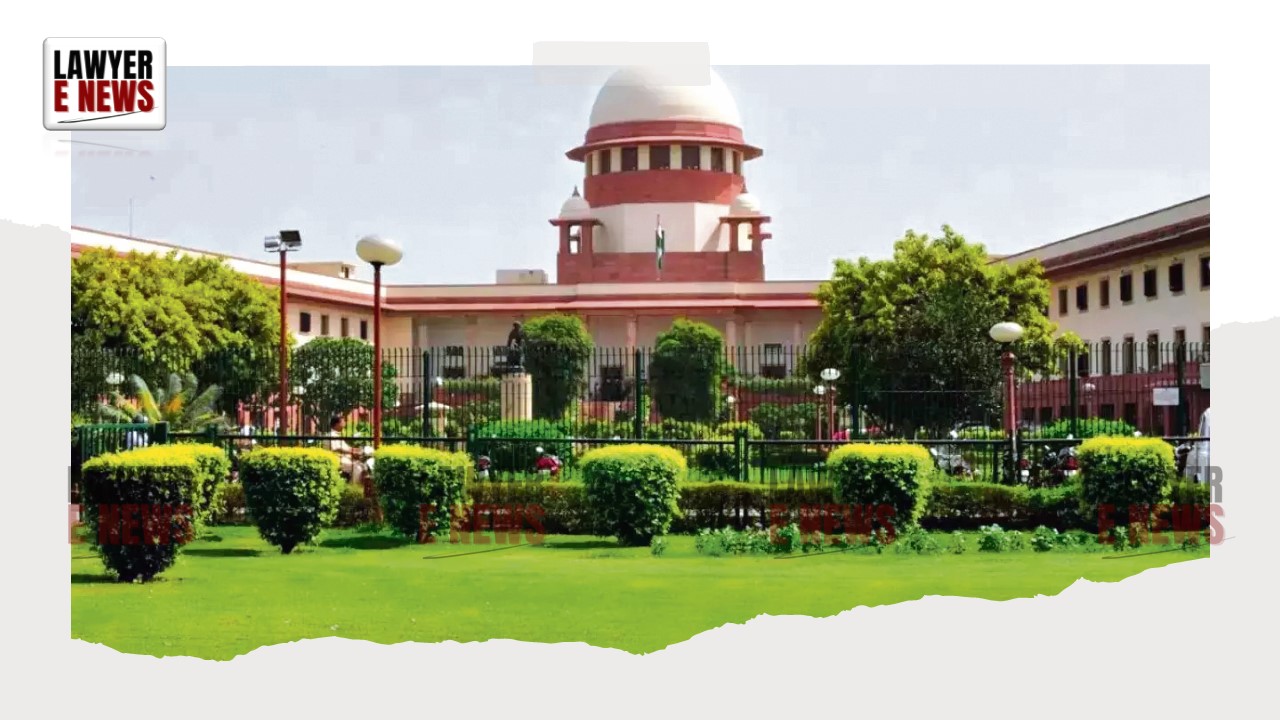-
by sayum
14 February 2026 2:22 PM



In a significant ruling Supreme Court of India quashed a decision by the Appellate Tribunal for Electricity (APTEL) and upheld the authority of the Municipal Corporation of Delhi (MCD) to conduct tariff-based bidding under Section 63 of the Electricity Act, 2003 for its waste-to-energy (WTE) project. The Court reinstated the Delhi Electricity Regulatory Commission’s (DERC) approval of the competitive bidding process and a ₹7.38/kWh tariff for the project.
The Supreme Court emphasized that Section 63 is not limited to distribution licensees (Discoms) or generating companies, clarifying that local authorities like the MCD, acting under their statutory obligations, can also invoke the provision. The judgment also highlighted the critical role of waste-to-energy projects in addressing environmental challenges and advancing renewable energy goals.
The case arose from a WTE project initiated by the MCD in Narela-Bawana, Delhi, under its statutory obligations outlined in the Solid Waste Management (SWM) Rules, 2016. The project, involving a capacity of 28 MW, aimed to process 3,000 tonnes per day of municipal solid waste to generate renewable energy.
The Delhi Electricity Regulatory Commission (DERC) approved the tariff-based bidding process and finalized a tariff of ₹7.38/kWh, submitted by M/s JITF Urban Infrastructure Ltd., the lowest bidder. However, the approval was challenged before APTEL by Gagan Narang and others, who argued that the MCD lacked the authority to invoke Section 63 of the Electricity Act.
On August 31, 2023, APTEL ruled that the MCD, as a local authority, could not invoke Section 63, holding that the provision was restricted to distribution licensees and generating companies. Aggrieved by this, the MCD approached the Supreme Court, seeking to restore DERC’s decision and allow the project to proceed.
The central issue was whether Section 63, which governs tariff adoption through competitive bidding, could be invoked by local authorities like the MCD. APTEL held that only Discoms or generating companies could file applications under this provision.
The Supreme Court overturned this interpretation, ruling that Section 63 is not limited to specific entities and that the MCD, acting in its statutory capacity under Rule 15 of the SWM Rules, 2016, could invoke this provision to ensure transparent bidding for the WTE project.
The Court held that the Electricity Act and the SWM Rules, 2016 must be read together to fulfill environmental and public health objectives. Rule 15 of the SWM Rules mandates municipal authorities to establish and operate solid waste management facilities, including waste-to-energy plants. The MCD’s actions were therefore aligned with its legal obligations.
The Court clarified that the powers of State Commissions, such as the DERC, under Sections 63 and 86(1)(b) must be read in harmony. These provisions empower the Commission to regulate electricity purchase and procurement processes, including tariff adoption for projects like the WTE plant.
Plain Reading of Section 63: The Court ruled that Section 63 does not impose restrictions limiting its invocation to Discoms or generating companies. Reading the provision narrowly, as APTEL did, would undermine the legislative intent of enabling transparent bidding processes for tariff determination.
Public Interest and Environmental Goals: The Court underscored the importance of the WTE project in addressing Delhi’s mounting waste crisis and meeting renewable energy targets under the National Tariff Policy, 2016.
Role of Local Authorities: Recognizing the critical role of municipal bodies, the Court noted that the MCD’s efforts were in compliance with Rule 15 of the SWM Rules, 2016, which mandates local authorities to process waste through technologies like waste-to-energy conversion.
Transparency in Bidding: The bidding process was found to be competitive and transparent, as certified by an independent evaluation committee. The tariff of ₹7.38/kWh was approved after considering all relevant factors.
The Supreme Court allowed the appeals filed by the MCD, quashed APTEL’s order dated August 31, 2023, and reinstated the orders passed by the DERC on March 6, 2023, and March 7, 2023.
The Court also emphasized the larger public interest served by the WTE project, which addresses both environmental concerns and energy needs, and directed the project to proceed as per DERC’s approvals.
Key Takeaways from the Judgment:
Section 63 of the Electricity Act can be invoked by local authorities implementing projects under statutory obligations, ensuring inclusive participation in the tariff adoption process.
The ruling highlights the necessity of WTE projects in managing urban waste, reducing environmental impacts, and generating renewable energy.
The judgment reinforces the need to interpret laws such as the Electricity Act and SWM Rules in a complementary manner to achieve overarching public policy goals.
The Supreme Court’s decision is a landmark for renewable energy and waste management efforts in India. By recognizing the MCD’s statutory obligations and its authority to undertake waste-to-energy projects, the ruling sets a precedent for municipal bodies across the country to play a pivotal role in addressing environmental challenges through innovative solutions.
This judgment ensures that Delhi’s waste-to-energy project can proceed without legal hindrance, addressing the twin crises of waste management and renewable energy production in the capital.
Date of decision: 02 January 2025
